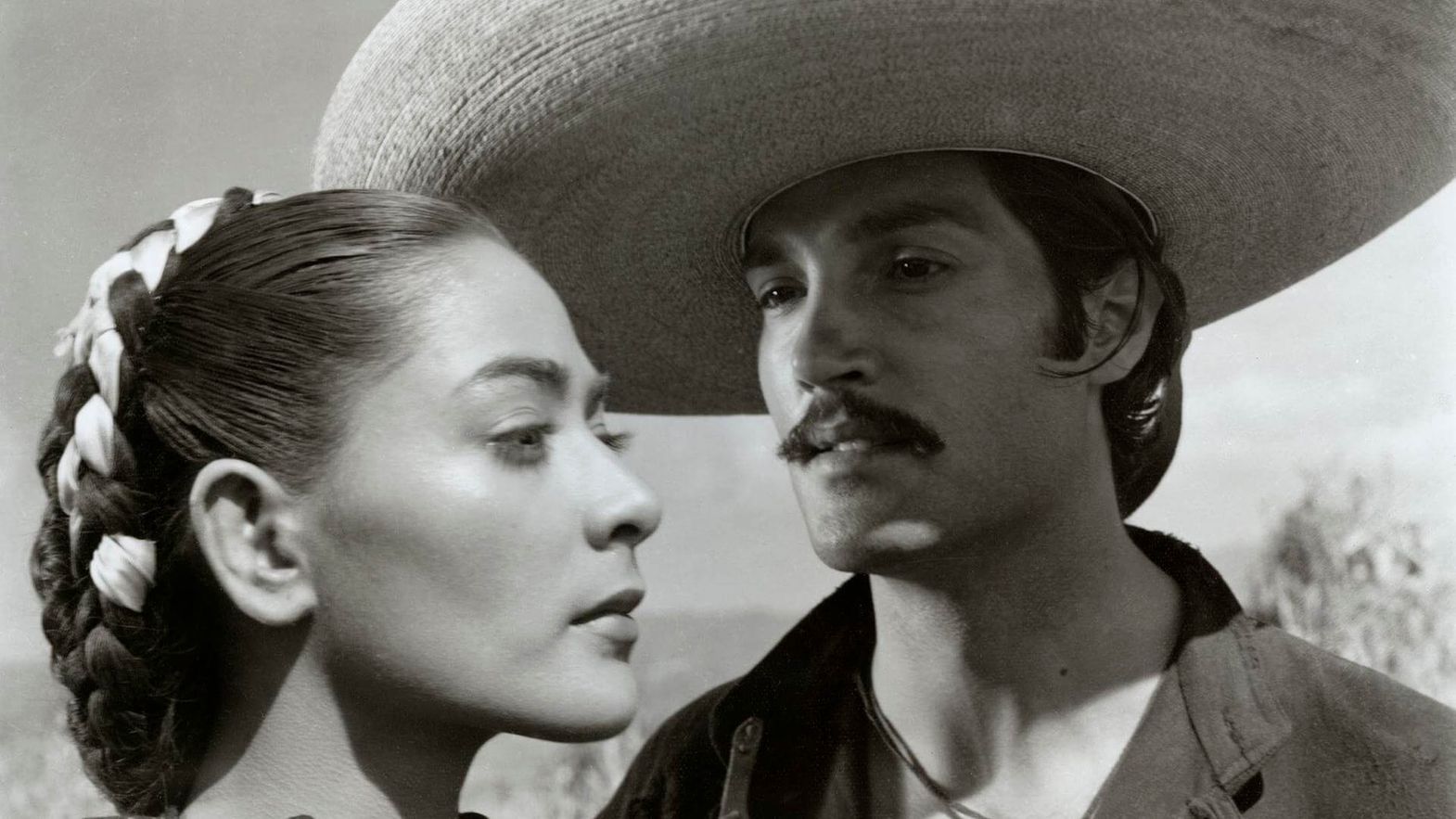 © Fondatión Televisa
© Fondatión Televisa
Pueblerina, one of the key films of Emilio Fernández, who thirty years later would direct an auto-remake entitled México Norte, can count on a twenty-year-old Columba Domínguez, in the role of Paloma, for the intense interpretation that definitively launched her as one of the most representative stars of Mexican cinema at its peak.
The film belongs to the genre of rural melodrama. In fact, even if there are no tragic deaths, at least among the most sympathetic characters, it is easy to be moved: overflowing emotions explode, tears abound and flow copiously, especially on Paloma's face, the fragile and contrasted love of the young former prisoner Aurelio who suffers continuous persecution throughout the film, real ostracism.
The setting is that of rural Mexico: there is the pueblo, the land to work together with the whole family, the church with the very wise priest, mules and horses as means of transport, cockfights to earn some extra money, village fairs. There is even a strange horse race, the "carrera": the competitors must grab knives and throw them several times against a wooden image used as a target.
The director of photography, the immense Gabriel Figueroa, paints with light: the skies overlook the characters in the pictorial scenes in long shot, which for their splendor do not disfigure at all in comparison with those of John Ford. As if Fernández's popular epic fed on the images (and stories) of the classic western.
The landscape and the places become so central to the economy of the story that in one scene we hear the voice-over of the birthplace of the hero Aurelio, a sort of specter of the house, which speaks to him as if it were an auditory hallucination. It is the call of the mother earth, very strong in Aurelio, to the point that not even the harassment and abuses suffered by Julio González, owner of the hacienda and rapist of Paloma, and by Ramiro González push the young man to leave the village. The overwhelming power of the evil González is confirmed in the threatening conversation with the delegation of the pueblo Rómulo, the political-administrative authority of the locality, who admits to having been placed in that role by the two, claiming however a certain decision-making autonomy. It is Rómulo who legally marries Paloma and Aurelio, proposing as witnesses his secretary and three friends imprisoned for drunkenness, when for fear of the González no one runs for office, not even Aurelio's old companions, Tiburcio and Froilán.
Among the film’s memorable parts, we mention at least the long sequence of the wedding party between Paloma and Aurelio, where none of the guests show up. Here too it is a long shot to include in the same frame at the same time the empty benches and the two spouses, their isolation is total. Perhaps only the carnival party of the magnificent I vitelloni by Fellini would reach such a level of sadness.
Francesco Grieco